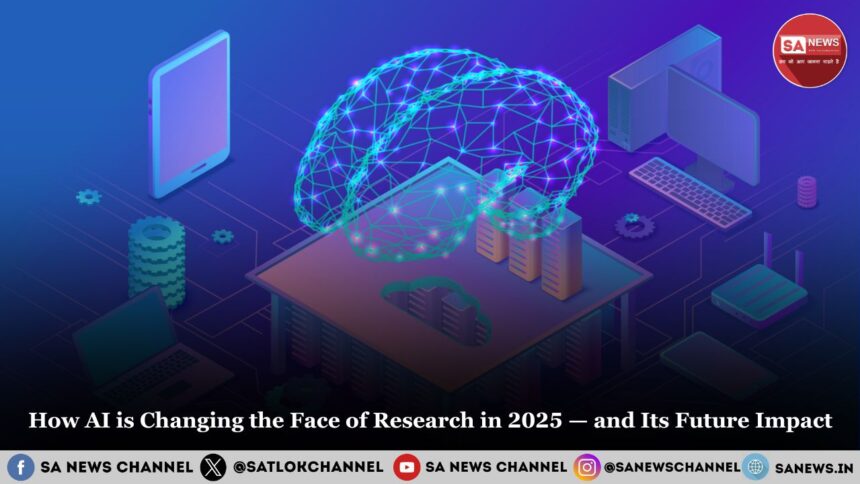Research—once a slow, labor-intensive process—is undergoing a profound transformation. Artificial Intelligence (AI), especially Generative AI (Gen AI), is disrupting traditional methodologies and opening new possibilities in academic, scientific, and industrial research. From automated data analysis to AI-generated hypotheses, the future of research is more intelligent, efficient, and accessible.
How AI is Transforming Current Research Practices
1. Automating Data Collection and Analysis
AI systems can process massive datasets in seconds—something that would take human researchers weeks or months. In climate science, for example, AI algorithms are used to model weather patterns and predict extreme events with high accuracy.
2. Enhancing Literature Reviews
With tools like Semantic Scholar or Elicit, researchers can use AI to summarize vast bodies of academic literature, extract key findings, and identify relevant citations—dramatically cutting down the time spent on preliminary groundwork.
3. AI in Hypothesis Generation
AI isn’t just a tool for analysis; it’s now helping generate research questions and hypotheses based on trends found in existing data. Gen AI models can simulate potential outcomes or suggest novel avenues for exploration.
4. Real-time Collaboration and Language Translation
AI-powered platforms support multilingual collaboration and live translations, enabling global researchers to work together without language barriers—accelerating innovation.
Future of Research in an AI-Driven World
The next decade will likely witness a hybrid research environment, where human expertise and AI collaborate seamlessly. Some experts believe that the future of research would consist of democratization of research to a large extent.
1. AI as a Research Partner
Instead of being just a tool, AI will act as an active collaborator—suggesting new directions, flagging inconsistencies, and even conducting experiments in simulated environments.
2. Democratization of Research
AI lowers entry barriers. Even students or researchers in remote areas can now access powerful AI tools to conduct high-quality research—making innovation more inclusive.
3. Ethical and Regulatory Implications
The rise of AI in research brings up ethical concerns: data privacy, plagiarism, and the validity of AI-generated conclusions. Future frameworks will need to balance innovation with integrity.
Challenges and Opportunities
- Challenge: Overreliance on AI might lead to intellectual laziness or loss of critical thinking.
- Opportunity: Researchers can spend more time on strategic thinking while letting AI handle the repetitive tasks.
- Challenge: AI may reproduce existing biases in data.
- Opportunity: AI also helps uncover biases faster and suggests neutral alternatives.
Harnessing AI for Humanity’s True Welfare
In light of the rapid advancement of AI in research, it becomes even more vital to align technological progress with true wisdom. Sant Rampal Ji Maharaj Ji emphasizes that real knowledge is that which leads to the welfare of humanity and connects us with our true purpose—attaining salvation. While AI can enhance efficiency, only spiritual knowledge as revealed in the holy scriptures can provide direction to use it righteously. True progress happens when science and spirituality go hand in hand, promoting not just innovation but inner peace and universal harmony.








